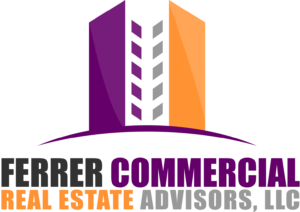The Synthetic Lease in Commercial Real Estate
What is a synthetic lease?
A synthetic lease is a relatively new technique which allows a lessee to control real estate and reap rewards by way of tax benefits for depreciation. Essentially the synthetic lease is structured in a way so as not to be recorded as a liability on the balance sheet but rather the property is written as an expense on an income statement.
A synthetic lease is an advanced and sophisticated method of financing. A lessee enters into a synthetic lease agreement with a lender, usually a bank or financial institution, who acquires title of the real estate. The lease agreement then requires the lessee to pay the lessor periodic lease payments during the lease term.
It’s an arrangement which allows the lessee to maintain accounting, rent, and tax advantages while also offering an option of purchasing the property at a predetermined rate at the end of the lease.
A synthetic lease allows companies to control real estate without showing it as an asset on its financial statements and is structured to qualify as a financing transaction under existing federal tax law.
Advantages of a synthetic lease
The synthetic lease offers significant advantages over conventional commercial leases:
- Occupancy costs are lower and no depreciation is charged against earnings for Securities and Exchange Commission reporting purposes.
- Companies control real estate and can purchase at anytime for a predetermined rate.
- Allows improvements to be depreciated for taxes.
- They are off the balance sheets which do not include rental escalators based on the consumer price index or percentage rent based on sales.
- Can result in an effective cap rate of 1-2% for a lessee with good credit because it can be funded 100% by debt instead of the standard 20% of equity usually funded by a conventional lease.
Disadvantages of a synthetic lease
The synthetic lease also offers several disadvantages as well:
- There is uncertainty around what happens at the end of the lease. Does the company roll over the lease? Purchase the property at the fixed rate? Or pay a penalty in supplemental rent to get out of the lease?
- Companies have to find banks willing to buy into the business plan.
- The IRS could retract allowing an operating lease off the books while it reaps tax benefits.
- The fluctuation of the real estate market and the lessee’s overall finances could cause high premium payments when all is said and done.
- The Financial Accounting Standards Board (FASB) has issued Financial Interpretations (FIN) 45 and 46 which are guidelines corporations must comply with.
If structured correctly, synthetic leases can be successful financing options for sophisticated and well established commercial real estate professionals. Their downside involves complex, detailed formation in order to qualify for financial purposes and meet criteria for federal tax law.
Commercial Real Estate Broker in Charleston, SC
Mike Ferrer, CCIM, MCR has over 15 years of commercial real estate Brokerage and Development experience. With a focus on warehouses, manufacturing, office buildings, vacant land, and Investment Sales. He opened his own brokerage in 2015, and has completed over $225,000,000 in transactions throughout the Lowcountry.
Mike is the past president of the Commercial MLS for the state of South Carolina and has served on many other civic and philanthropic boards. Mike has a plethora of commercial real estate knowledge and established ties to the local community both statewide and stretching across the entire southeast.
Have further questions about synthetic leases or owning Commercial Real Estate in Charleston? Feel free to contact me with any questions you may have!
Follow Ferrer Commercial Real Estate Advisors, LLC. on Facebook, Twitter, YouTube, & LinkedIn


Comments
I was able too find good information ffrom youur blog
posts.